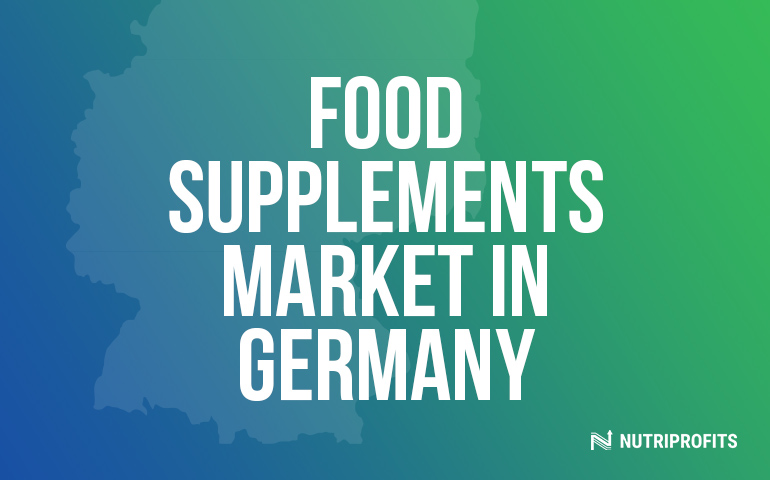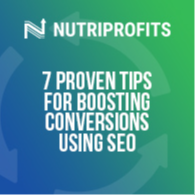Good health is essential for our survival. The healthier we are, the less likely we’ll get sick. One of the best ways to get healthier is to eat the right foods, like fruits and vegetables. A quicker way is taking food supplements.
Food supplements are becoming more popular each passing year. You can find some at your grocery store, but select stores are also dedicated to them. Due to their rise in popularity, more food supplement markets are popping up in several locations worldwide.
One of those places is in Germany. To understand the popularity of food supplements in Germany, we’ll have to look over these nutritional supplements from an affiliate marketer’s perspective.
Numbers and Facts
Germany has one of the highest populations in Europe, so it’s no surprise to see many food supplement markets there. With a population of 83 million people, Germany is Europe’s largest healthcare market.
This central European country has a booming demand for food supplements. Many people wish for these healthy offers because they want to grow older and healthier, improve themselves, and be more conscious about their health.
Did you know that almost one-third of Germans take food supplements weekly? Did you know that one in six Germans take them every day? Why is that the case? According to the German Federal Institute for Risk Assessment (BfR), the most popular reason for taking food supplements is a deficiency in a certain vitamin.
Some of the most popular supplements are vitamin D, vitamin B12, vitamin C, and multivitamin preparations. Half of these consumers believe these supplements benefit them, while only one-tenth of non-consumers think so.
Hearing these facts makes the boom of the food supplements industry no surprise. For example, the total sales for these nutritional supplements amounted to €2.6 billion in 2019, which is a 5.8% growth from 2017. Some of the most popular distribution places for these supplements are pharmacies, where more than 84% of revenues come from. 266 million packages of supplements were sold in Germany in 2019.
Vitamins and minerals made up 51% of said revenue in 2019. Other avenues of revenue in 2019 included:
- Remedies for the cardiovascular system- 10%
- Analgesics for muscles and joints- 9%
- Tonics/geriatrics/immune stimulants- 9%
- Probiotics for the digestive tract- 8%
- Remedies for the bladder and reproductive organs- 8%
- Ocular vitamins- 2%
- Oral beauty- 2%
- Hair care- 2%
Most of these avenues had exponential growth in 2019; remedies for the bladder and reproductive organs had the biggest growth at 8.0%. The only avenues that had a decrease in growth are:
- Remedies for the cardiovascular system (-0.1%).
- Analgesics for muscles and joints (-0.2%).
- Ocular vitamins (-0.2%).
Another supplement that continues to grow to this day is probiotics. Revenue for probiotics rose to €163 million in 2019, with sales of six million packages. That’s a growth of seven percent!
Most food supplement sales are classified as self-medication in the German market. However, some over-the-counter products, like nutraceuticals, can be prescribed by doctors. In 2017, about one-quarter of supplement sales from pharmacies originated from medical prescriptions. You can buy nutraceuticals online. One in five supplements distributed by pharmacies were mail orders.
Behind pharmacies, drugstores are the most important distribution place, with a revenue share of 10.6%. Other popular places to buy supplements are mass-market channels like supermarkets.
One thing every supplements affiliate program has to think about is regulation. We take food supplements to supplement our general diet. According to Mintel, 65% of Germans think that vitamin C helps support the immune system; that percentage increased to 76% for 16-to-24-year-olds. You can take vitamins in these forms:
- Capsules
- Coated tablets
- Powder
- Liquid
Vitamins are sold in dosed form. Capsules are the most popular forms of vitamin dosage, with 34.1% of market share. Tablets follow, with powders being behind and liquid being the least popular method of taking vitamins.
The basic provisions of the German Food and Feed Code of Law (LFGB) cover the European Union's food supplements and other food law regulations. Food must be safe to consume, and the information on the package can't mislead us. This means disease-related claims are prohibited unless they've gone through official examinations and are approved.
Food supplements are exempt from these mandatory approval regulations. However, they must be registered with the Federal Office of Consumer Protection and Food Safety (BVL). Manufacturers and distributors must follow food law provisions. Every supplements affiliate program must track food supplements placed on markets; this is the same case with the food monitoring authorities of the German federal states.
Growth of Interest Due to Covid-19
Covid-19 has affected us in many ways. One industry that the pandemic has affected is the food supplements industry.
In the first half of the pandemic, Germany's food supplements markets got an 8% boost in sales, according to IQVIA. The year-on-year average between 2015 and 2019 was around 6%. We've already mentioned that one-fifth of supplements distributed by pharmacies were mail orders, but that trend blasted off in the first half of 2020. Since many places were closed during that time, most people had no choice but to order online.
The German market reached $2.1 billion in retail sales, as stated by Euromonitor. That's an estimated growth of 6% between 2020 and 2024! The value projection in 2028 is estimated to be worth $6.4 million. The top five companies in this market hold 34% of the share, while only 16% of retail sales are from private labels.
One reason for this huge interest in food supplements during the Covid-19 pandemic is people's growing awareness of personal health. Many people knew they had to boost their immune systems to beat the virus, so they figured taking food supplements would help them fight off this particular virus.
According to Mintel, 35% of Germans who take these nutritional supplements use them to boost their immune systems in the wake of Covid-19. 14% of Germans increased the number of supplements they’re taking as a result. Immune health was the biggest motivator for this factor.
With this factor and the rise of health check-ups and distributions of immunity-boosting, we're expecting the food supplements market to increase even better after the pandemic.
Western Europe Promoting Food Supplements
Though Germany is the largest healthcare market in Europe, it's not the only country with many food supplement places. Europe, particularly western Europe, has had a huge demand for these nutritional supplements. Western Europe is one of the leading markets when it comes to food supplements. Along with Germany, these western European countries are the most popular with CPA affiliate health offers:
- France
- Italy
- United Kingdom
66% of supplement users in Germany admitted they'd taken supplements for cognitive and mental health benefits, while those percentages are 62% in France, 56% in Italy, and 45% in the United Kingdom.
Capsules and tablets are popular in Europe, but gummies/chewables have had the biggest growth in the past five years (23%). France and the United Kingdom are the countries that consume the most gummies, while chewables are the most popular in Italy.
Vitamin C is the most popular supplement in these four countries, with a 14% increase since Covid-19. Vitamin D has also had a boost due to a link between that deficiency and severe Covid cases.
Digestive supplements are trending in Europe, too, especially in Italy. Almost half of the supplement takers said they've taken supplements to improve their digestion, while in Germany, more than two-thirds of them have taken digestive supplements.
Summary
Germany is Europe's largest food supplement market. With one-third of Germans taking supplements weekly, it's no surprise that the country's supplement revenue was €2.6 billion in 2019. Supplements are also popular in Western European countries, providing health benefits like boosting immunity.





.jpg)

-1-1.jpg)